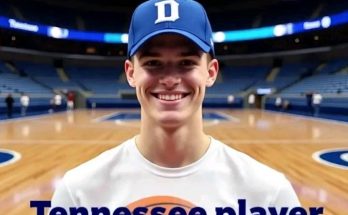Here’s a comprehensive, engaging article on Peyton Manning’s latest “significant gift” to Tennessee — a gesture that may not be the headline-grabbing $150 million, but carries profound meaning and tangible impact. Let’s dive in:
When you hear “Peyton Manning” and “gift to Tennessee” in the same sentence, expectations tend toward jaw-dropping figures. The truth? His latest gift falls well short of the mythical $150 million, but that’s not the point. It’s not the dollar amount—it’s who’s being helped, how, and why it matters.
Penned quietly, funded intentionally, and then revealed with grace—it’s the kind of move that doesn’t dominate headlines but builds real bridges between past and future Volunteers.
On April 24, 2015, Peyton and his wife Ashley announced a $3 million “leadership commitment” to their alma mater (nfl.com). Spread across two central beneficiaries:
- The Tennessee Football Program – Funding facility improvements, program enhancements, and student-athlete support.
- The Peyton Manning Scholarship Endowment – Doubling its annual awards from two to four, helping honors-level freshmen pay the full cost of attendance (nfl.com, si.com).
In other words, while $3 million might seem small against multimillion-dollar athletic budgets, the multiplier effect—scholarships, infrastructure, recognition—builds a legacy far greater than the number on the check.
This wasn’t simply about Peyton and his wife putting money in the bank. They also used this moment to underscore gratitude—naming parts of the facility in honor of two beloved Tennessee staffers:
- Gate 16 at Neyland Stadium became the Gus Manning Gate, celebrating his more than 60 years of service (espn.com).
- A dining hall in a new residence hall was named after Carmen and Deborah Tegano, recognizing decades of contributions and mentoring (wate.co).
It’s a public acknowledgment of those who build behind the scenes—the coaches, staffers, mentors—whose toils shape student-athletes and programs. It tells current players: excellence is a team effort, on and off the field.
Let’s break down that scholarship endowment:
- Started in 1998, the Peyton Manning Scholarship was originally awarded to just one first-year honors student. Over time, it supported two students annually.
- With this gift, four students per year now benefit from four-year, full-ride scholarships for tuition, room, and board (news.utk.edu).
- Historically, $526,000 has been awarded to 21 students through 2015 (nfl.com). With the increased recipients, that figure multiplies rapidly.
Why it matters: Education is the ultimate platform for long-term impact. Manning’s gift empowers students to pursue academic, leadership, and community excellence—hallmarks of his own legacy at UT.
blueprint for post-career philanthropy.
Broken down, Manning’s philanthropy reflects a deeper ethos:
- Campus Enrichment
Investing in top-tier facilities helps attract and retain high-caliber student-athletes. - Educational Access
A scholarship isn’t charity—it’s an investment in leaders, creators, and change-makers. - Community Acknowledgment
Honoring staff members fosters a culture of appreciation and respect across all university ranks. - Authentic Leadership
Manning’s partnerships with UT, the Haslam Foundation, Pat Summitt Foundation, and others signals personal accountability, not just lip service.
Peyton’s generosity doesn’t stop in Knoxville:
- His Peyback Foundation, founded in 1999, has funded youth and education programs in Louisiana, Tennessee, Indiana, Colorado, and more.
- In 2020, the foundation quietly endowed six scholarships at HBCUs—a “pleasant surprise” that spotlighted underserved communities In 2022, the foundation created the Demaryius Thomas Scholarship at Georgia Tech—broadening its academic philanthropy
Peyton’s giving spans geographies and causes, yet remains deeply personal and focused on empowerment.
What’s the heart behind the headlines?
- Scholarship recipients—freshman honors students who now climb barriers armed with mentorship, resources, and confidence.
- Staffers Gus Manning and Carmen Tegano—who receive institutional homage, instilling pride and continuity.
- Student-athletes—who train and compete in facilities shaped, in part, by Peyton’s donations.
These aren’t abstract beneficiaries. They’re individuals, dreams put into motion, relationships forged.
The ripple effect of Manning’s gift isn’t just academic—it energizes the entire Tennessee athletic ecosystem:
- Recruiting Advantage: Top-tier facilities and honored legacy appeal to incoming draftees and their families.
- Culture of “Vol for Life”: Manning’s own brand of loyalty reinforces a volunteer-driven identity focused on service.
- Tradition Meets Future: Modern infrastructure and scholarships signal Tennessee’s ability to evolve while honoring roots.
From fans to future donors, this catalyzes momentum that’s hard to quantify—but easy to witness.
If you’re wondering, “Why not aim for $150 million?” – here’s why it doesn’t matter:
- Meaning over pageviews: This gift doesn’t seek headlines. It seeks outcomes.
- Strategic targeting: Scholarships + infrastructure + legacy = long-term transformation.
- Community uplift: The emotional pull of honoring soul of program outstrips the blunt force of pure cash.
- Setting a model: Not everyone can give six-figure sums, but everyone can invest in values-aligned generosity.
Here’s where Manning’s gift can inspire action:
- Track the Students: Follow scholarship recipients through graduation and into careers—tell their stories.
- Facility Upgrades: Monitor infrastructure developments named after Gus Manning and Tegano.
- Inspire Fellow Alumni: Others may choose to “step up” in their own meaningful way: student support, facility naming, endowment expansion.
- Celebrate Inclusivity: Model giving that spans races, genders, socio-economic lines, and campus divisions.
Peyton Manning’s latest donation may not match the mythical $150 million, but it’s exponentially more meaningful. It’s a gift embedded with intention, memory, and culture—a form of philanthropy rooted in humanity, not headlines.
- It deepens UT’s academic infrastructure.
- It empowers students who might otherwise struggle.
- It honours the unsung staff members at UT.
- It reinforces a legacy of service and loyalty.
- It sets a model that giving doesn’t require going “big”—but it does require going deep.
If your measure of impact is heart + community + continuity, then this is a giant gift indeed.
In short:
- Dollars: $3 million
- Recipients: Tennessee football & scholarships
- Impact: Expanded access, honored staff, elevated facilities
- Legacy: A 20‑year pattern of generous, targeted, sincere giving


